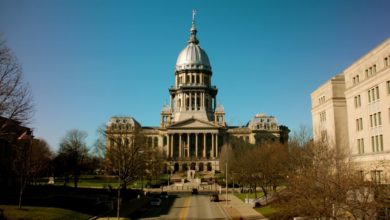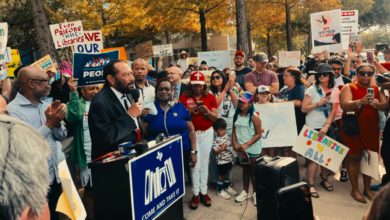Students and former students across the United States owe the big banks and other financial entities over $1 trillion just because they decided to pursue a higher education. The average student graduates with about $25,000 of debt; roughly two out of three have to take out loans to go to school. Adjusted for inflation, average indebtedness has doubled over the last decade. Student loan debt is the second largest source of private debt in the country, recently surpassing credit card, auto loan and home equity debt.
To make things worse, student loan debt is a potential source for a future economic crisis. Given the bleak job market and stagnant incomes that students face after graduation, it is very possible that so many will end up defaulting on their loans that the credit market will contract, leading the rest of the economy to crash. A similar process took place in the housing market and resulted in the current massive recession.
The accumulation of huge amounts of debt from the onset of adulthood is one of the most pressing issues facing young people, but what can be done about it? The Party for Socialism and Liberation wholeheartedly endorses the demand of the growing students’ movement—cancel all student loan debt. Despite the mix of horror and dismissal this goal elicits from the political establishment it is entirely feasible, but only if we are not held hostage by the supposed sanctity of capitalist property relations.
Student debt could be immediately forgiven if we seized the huge financial institutions that issue the loans. By expropriating the banks, we would remove private profit from the equation, and decisions could instead be based on satisfying human needs. The democratic management of the working people and our allies would ensure that solvency would not be an issue. Society would no longer have to support the opulent lifestyle of a clique of parasitic bankers, and initial steps could be taken to abolish capitalist property relations and shift over to democratically planned production and distribution in the public interest.
Democratic Party politicians have proposed a variety of policies to address the issue—lower interest rates, income-contingent payments, debt forgiveness after 20 years of payment, and so forth. The Obama administration eliminated $60 million it was giving to banks to administer loans, and increased direct aid to poor students. But all of these measures intentionally avoid the heart of the issue—education is increasingly treated as a commodity under capitalism.
In the United States, higher education is increasingly only available to those who can afford it, or those willing to take out loans they might never be able to pay back. Adjusting the terms of this exchange to make education more accessible for working-class youth is of course positive and should be supported. However, as long as student loans represent a possible source of profit, capitalists can be counted on to exploit the opportunity. What we need is a new system that treats education as a basic right necessary for human and social development, instead of a commodity.





